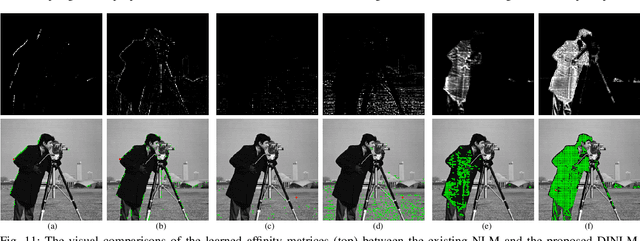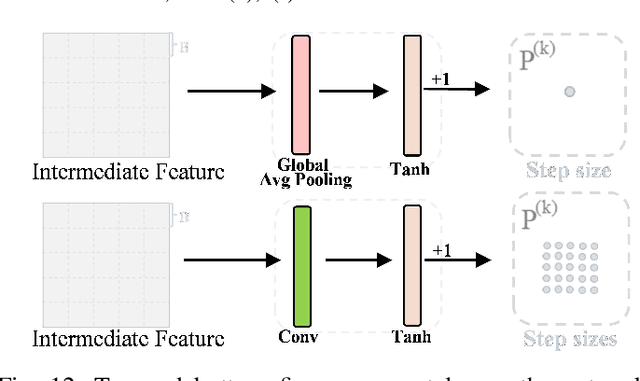Deep Unfolding Network for Image Compressed Sensing by Content-adaptive Gradient Updating and Deformation-invariant Non-local Modeling
Paper and Code
Oct 16, 2023



Inspired by certain optimization solvers, the deep unfolding network (DUN) has attracted much attention in recent years for image compressed sensing (CS). However, there still exist the following two issues: 1) In existing DUNs, most hyperparameters are usually content independent, which greatly limits their adaptability for different input contents. 2) In each iteration, a plain convolutional neural network is usually adopted, which weakens the perception of wider context prior and therefore depresses the expressive ability. In this paper, inspired by the traditional Proximal Gradient Descent (PGD) algorithm, a novel DUN for image compressed sensing (dubbed DUN-CSNet) is proposed to solve the above two issues. Specifically, for the first issue, a novel content adaptive gradient descent network is proposed, in which a well-designed step size generation sub-network is developed to dynamically allocate the corresponding step sizes for different textures of input image by generating a content-aware step size map, realizing a content-adaptive gradient updating. For the second issue, considering the fact that many similar patches exist in an image but have undergone a deformation, a novel deformation-invariant non-local proximal mapping network is developed, which can adaptively build the long-range dependencies between the nonlocal patches by deformation-invariant non-local modeling, leading to a wider perception on context priors. Extensive experiments manifest that the proposed DUN-CSNet outperforms existing state-of-the-art CS methods by large margins.
 Add to Chrome
Add to Chrome Add to Firefox
Add to Firefox Add to Edge
Add to Edge